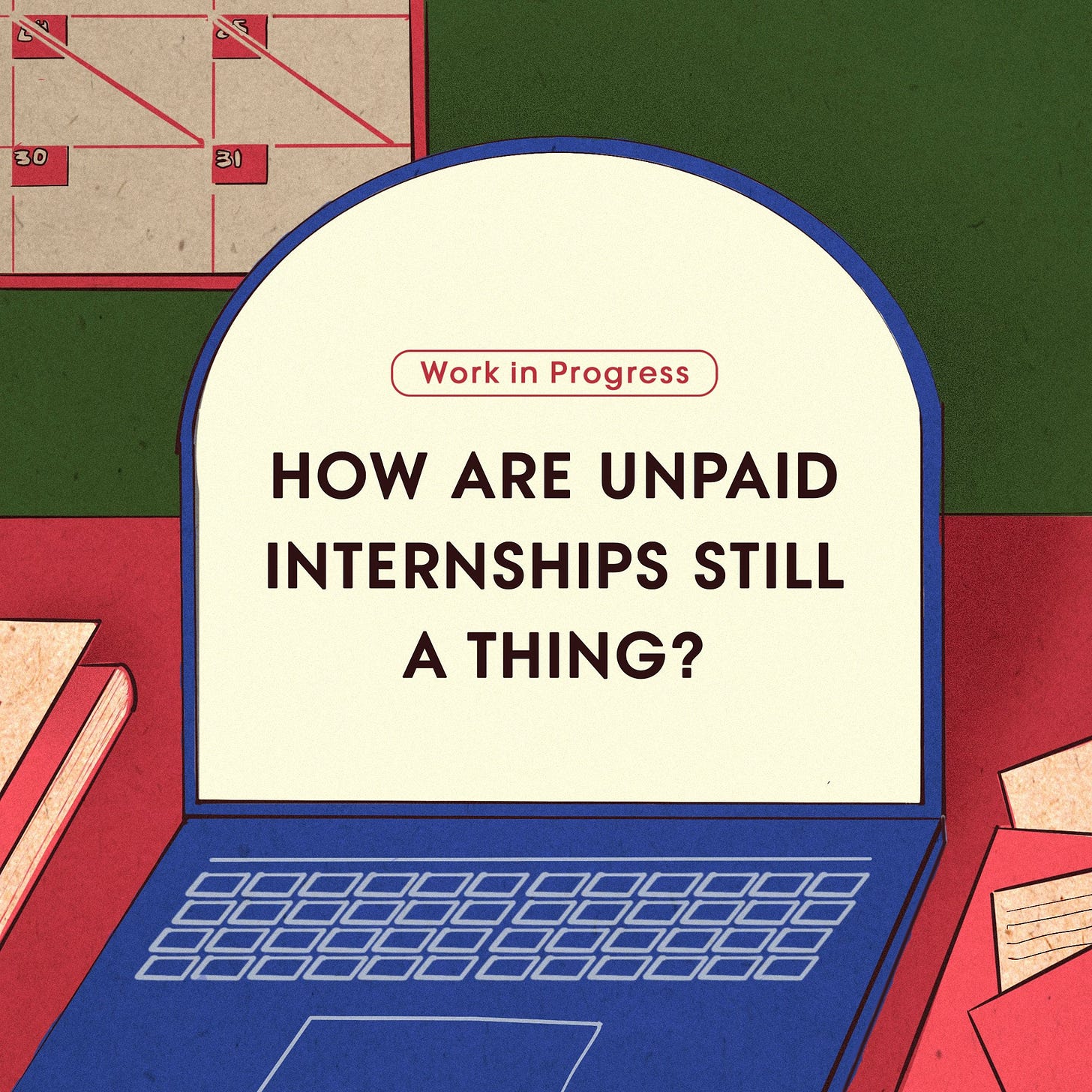The Happy Hypocrisy of Unpaid Internships
Let me begin, like virtually every writer on unpaid internships, by blockquoting the Department of Labor’s rules about such positions’ permissibility. Unpaid internships in the for-profit sector are allowed as long as all of the following are true:
1. The internship, even though it includes actual operation of the facilities of the employer, is similar to training which would be given in an educational environment;
2. The internship experience is for the benefit of the intern;
3. The intern does not displace regular employees, but works under close supervision of existing staff;
4. The employer that provides the training derives no immediate advantage from the activities of the intern; and on occasion its operations may actually be impeded;
5. The intern is not necessarily entitled to a job at the conclusion of the internship; and
6. The employer and the intern understand that the intern is not entitled to wages for the time spent in the internship.
Unlike virtually every writer on unpaid internships, I’m not going to suggest that many unpaid internships in the for-profit sector are illegal because they run afoul of one or more of these rules. Instead, I’m going to categorically state: No unpaid internship in the for-profit sector ever has or ever will satisfy these rules! Why? Because Rule #4 is absurd beyond belief.
Simple question: Why on earth would a for-profit firm hire interns from whom the firm derives “no immediate advantage”? Imagine you’re a human resources officer at a firm and you want to launch an unpaid internship program. How would the Board of Directors respond if you declared, “I propose hiring unpaid interns from whom we derive no immediate advantage whatsoever”? What would they think if you added, “Oh, and these interns will occasionally impede our operations”? The Board’s obvious reaction would be, “We’re a business, not a charity.” No profit-maximizing firm would want to hire unpaid interns under the written rules.
The absurdity of Rule #3 isn’t quite as blatant, but no firm complies with it either. Anything useful an intern does could have been done by a regular employee. Don’t believe me? Fire the interns and see who picks up the slack. Of course, if it’s compliant with Rule #4, no intern can do anything useful for the firm anyway.
Mainstream writers on unpaid internships take it for granted that rule-breaking internships must be stopped. Many would be delighted to use my observations to ban unpaid internships altogether. My point, of course, is the opposite: Rules this stupid are made to be broken. Hypocrisy and double-talk shield us from the malevolent folly of the Department of Labor.
What makes these rules so stupid? Simple: Internships are vocational education. If schools can educate students in exchange for their tuition, why can’t businesses educate students in exchange for their labor? No reason, just anti-market bigotry.
The real problem with unpaid internships is that we’re not hypocritical enough. Regulators look the other way when businesses train college students for college-type jobs in exchange for their labor. But the rest of the labor market is out of luck. If McDonald’s set up unpaid internships for high school dropouts, regulators would come down on it like a ton of bricks. As a result, the only people who can get on-the-job training are those who need it the least. Instead of banning unpaid internships, we should make them available to everyone.
P.S. Does this mean we should abolish the minimum wage? Well, if there’s a good reason why trainees should get either $0.00 or $7.25 but nothing in between, I’d like to hear it.
P.P.S.: Nathaniel Bechhofer points out that John Stossel made a related point some years ago…
The post appeared first on Econlib.



I rarely disagree with your blog posts, but I think you are way off the mark here. #4 isn’t absurd at all. In practice, companies do things that do not help their bottom line all the time. May companies have a charitable donation team that literally gives their money away.
But even if not, it’s easy to make a business case for giving unpaid internships that are neutral or slightly negative immediate value to the company: it increases the value of your hiring pool for the next year. Some of your new hires will be your interns from last year, who will be able to hit the ground running and create value faster thanks to their knowledge of your company processes. And some of the most valuable former candidates may choose you over your competitors because they had a good time during the internship with you and made friends.
What are even worse than unpaid internships are ones where interns actually have to pay for the privilege. The longest-standing version of this scam is student-teaching, where new teachers must pay tuition to their university in exchange for going to work in a school. My wife's student teaching experience (she didn't end up becoming a teacher) was having her supervising teacher disappear for 'medical reasons' for nearly the entire semester, and no replacement supervisor was assigned. It was her classroom for months, for which labor she paid a significant sum. But this 'pay to work' arrangement has become more common in other fields as this is an reliable shield against being accused of breaking the unpaid internship rules and also provides money to educational institutions -- part of which can be used to provide kickbacks to the intern's 'employer'.